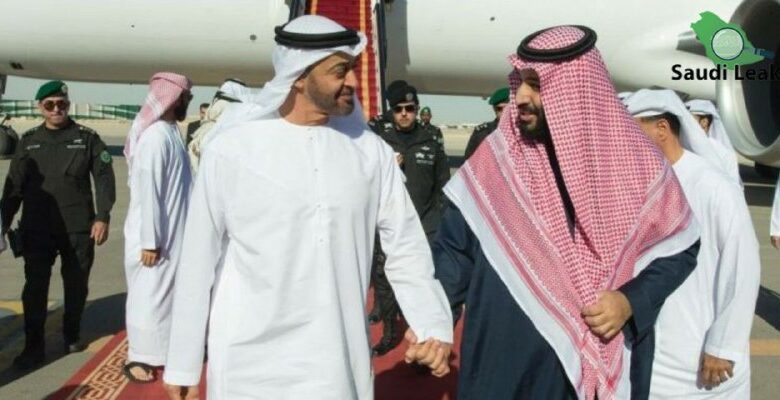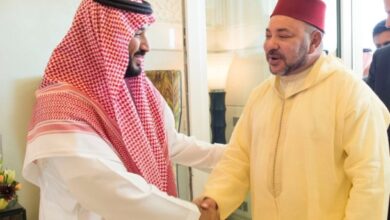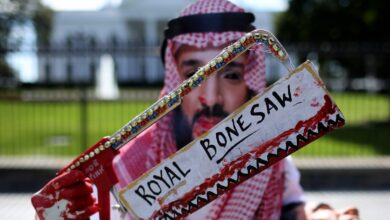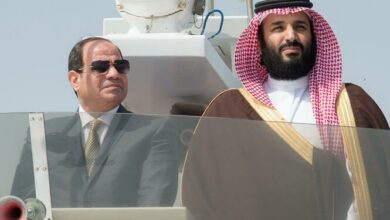US studies institute highlights the risk of bin Salman and bin Zayed partnership collapse

Simon Henderson, an analyst at the Washington Institute for Near East Studies, highlighted the possibility that the Yemeni crisis would hurt the Saud House regime’s partnership with the UAE or rather between Mohammed bin Salman and Mohammed bin Zayed.
Henderson said in an article published by the US Congress website “The Hill” that one of the things that have become known in the new Middle East and emerged during the past four years is the close partnership between Saudi Arabia and its small Gulf neighbor, the UAE, and the relationship was personal between the rulers of the two countries .
Both are key figures in today’s regional conflict drama, and their views of the Iranian threat and, to a lesser extent, the Palestinian-Israeli peace process overlap with those of the White House. But things are changing and the relationship between the two allies is being tested, and many players and observers are also monitoring the situation. Their rift will echo from the sands of Libya to the Strait of Hormuz, and oil is the overarching point.
The focus this week was on Yemen, where both sides were trying to return the internationally recognized legitimate government to the capital Sanaa, which the Houthi rebels occupied in 2014.
Since 2015, the legitimate government has had to operate from the southern port of Aden. However, the southern secessionists took control of the city and occupied the military bases of the legitimate government, and these forces supported by the UAE forced the remainder of the government of Abed Rabbo Mansour Hadi to flee to Riyadh. This shows that Saudi Arabia and the UAE no longer support the team or the same goal.
Henderson points out that interest in the visit of the Crown Prince of Abu Dhabi to Mecca, where King Salman will meet with senior visitors who visited the holy city and performed the pilgrimage.
The crown prince of Abu Dhabi was warmly welcomed, received according to the protocol, and taken to meet with the Saudi king, reportedly holding a separate meeting with Crown Prince Mohammed bin Salman. The Saudi position is openly based on calling for dialogue and “defusing the crisis,” and we await details of what this means.
Apparently, Hadi has been encouraged to engage with those who expelled his forces from Yemen, which in no way means dialogue with the Houthis, whom Saudi Arabia and the United Arab Emirates are dealing with as proxies for Iran in Yemen. Certainly, Tehran supports the Houthis, but its assistance or supply of weapons and money is a matter of diplomatic and journalistic debate.
“It is difficult to assess Bin Zayed’s facial expression because the keffiyeh has obscured his face,” says Henderson. But the picture published on the front page by Arab News, the leading English-language Saudi newspaper, showed Ben Zayed in a serious way as he tried to clarify the point of bin Salman, who was looking at the land. Whether this picture is new or old is unclear, but it summarizes the way the Yemen crisis has wobbled.
The apparent facts point to differences in methods that led to a strategic setback. Hence the narrative that we were asked to believe is that Bin Salman, Bin Zayed and their two countries are in one position, and their relations are closer than before. Bin Zayed is a cautious and disciplined supporter of Bin Salman.
Since King Salman’s ascension to the Saudi throne in 2015, bin Salman has begun his rapid rise as a defense minister, deputy crown prince and crown prince now, and necessarily the de facto ruler of the kingdom. On the way to achieve this ambition there was a campaign of arrests of the Ritz-Carlton, the killing and cutting of journalist Jamal Khashoggi, unlimited expenses on a yacht and historical palace and a painting by Leonardo da Vinci dedicated to Mohammed bin Zayed.
At some point, he described Mohammed bin Zayed as a teacher of Mohammed bin Salman, or that the relationship between friendship and love, but bin Salman at the moment is immune and does not want to listen to advice or guidance.
Yemen remains a side-effect in the Middle East drama, but before the recent events, the UAE began withdrawing its troops and no longer focused on driving the Houthis out of Sanaa. Mohammed bin Zayed seems to be satisfied with a separate state in the south, and whether or not this is part of Mohammed bin Salman’s vision, is the question.





